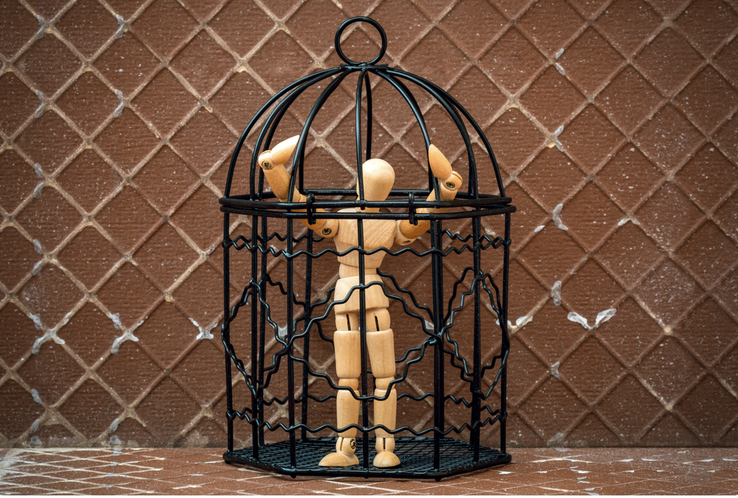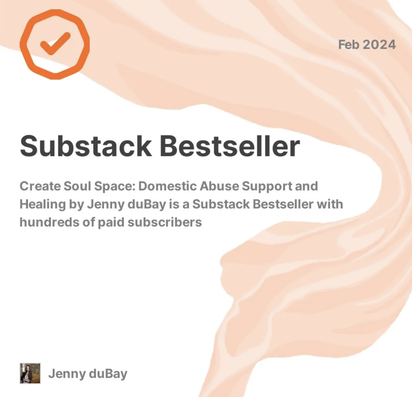|
Have you ever wondered if you’re a victim of physical violence within your own home, but you’re not quite sure? Or perhaps you haven’t wondered at all, because the threats have been so hidden that you haven’t recognized them. After all, he’s never hit you …
Even for those enduring physical abuse, the tactics aren’t always obvious. This may seem like a silly thing to say—after all, physical violence is always obvious, isn’t it? There will be an outright attack that results in bruises or scratches, broken bones or finger marks, perhaps even blood. Maybe an ambulance will have to be called, or the police. And there will be physical pain, of course, mingling and swirling with all the emotional pain … However, there’s more to physical violence than overt attacks on the body. Intimate partner violence can be so much more than that—which is why many people who are in physically abusive relationships don’t even realize it.
0 Comments
Domestic abuse does a number on a person (and that’s putting it mildly). To be so betrayed—again and again—by the person you trust the most, love the most, and had the most faith in, is devastating. Just ask Jesus—He knows what that feels like. When I emerged from the frozen shock of abuse and began to heal, I felt like I’d spent the last decade sleeping my life away, cut off from the rest of the world, secluded in a void of my own making. I’d been hiding in the clefts of the rock so no one could hurt me any longer (Song of Songs 2:14). Betrayal trauma does that to a person, especially if the betrayal is a protracted one, spanning years or even decades. Infidelity, domestic abuse, the confusion of being brainwashed into thinking you’re the cause of every problem … All these issues naturally lead to self-doubt, a depletion of the spirit, and a desire to isolate in order to stay safe. I’ve always found Sacred Scripture to be of immense comfort as I struggled through my pain and healing. No matter where I’m at in life, Scripture has been my foundation. Even those verses that don’t provide help or consolation, but show the struggles of humanity and how God truly understands, are immeasurably reassuring. Within the pages of the Bible, no matter where I turn, there I find myself. “I call to God the Most High, to God who has always been my help. My soul lies down among lions. Their teeth are spears and arrows, their tongue a sharpened sword.” (Psalm 57:2,4) Yes! Especially during my lowest times I could completely relate to those verses, and found comfort in the relation. Yet as I began to open up to the possibility of finally healing from my wounds, I also knew — and trusted, and truly believed — that “my heart is ready, O God, my heart is ready” for His saving graces (Psalm 57:7).
Even so, there was one verse in the Bible that made me cringe. One verse that I couldn’t bear to read, because it made me feel sick to my stomach. It was a trigger, and a huge one at that. Before we dive into the next chapter of my book, Don’t Plant Your Seeds Among Thorns: A Catholic Guide on Domestic Abuse, I want to give a huge shout-out — filled with tremendous thanksgiving and gratitude — for the immense response to my book. In just the short time that it’s been incrementally released, I’ve been awarded the “Substack Bestseller” status due to the large increase in readers. Each subscriber helps me continue my ministry, so I’m truly grateful to all. I had no idea the response to my book would be so huge, yet it does speak to a lack in our Catholic culture, as I’m hearing so often from my clients, DV support group participants, and readers. So many groups, parishes and organizations in our Catholic community don’t want to touch the topic of intimate partner aggression, because it’s “too controversial.” Yet in reality, domestic abuse—even in Catholic marriages—is a sad fact. The most recent statistics report that about one-third of relationships are abusive—and this includes Catholic marriages. Even more so, with Catholic marriages, spiritual abuse is often at play. This isn’t a topic we should avoid as if it doesn’t exist. It’s one we need to face, head-on.
So again, thank you one and all! I’m filled with gratitude that, in whatever small way, I can help clarify the issues of intimate partner violence and what the Catholic Church teaches on abuse, personal dignity, mutual self-giving in relationships, and all aspects of healing and renewal. With that said, let’s get on with it! In chapter four of Don’t Plant Your Seeds, I cover the sad yet necessary topic of isolation. |
AuthorJenny duBay, Trauma-Informed Christian life coach specializing in healing from betrayal trauma and domestic abuse. |





